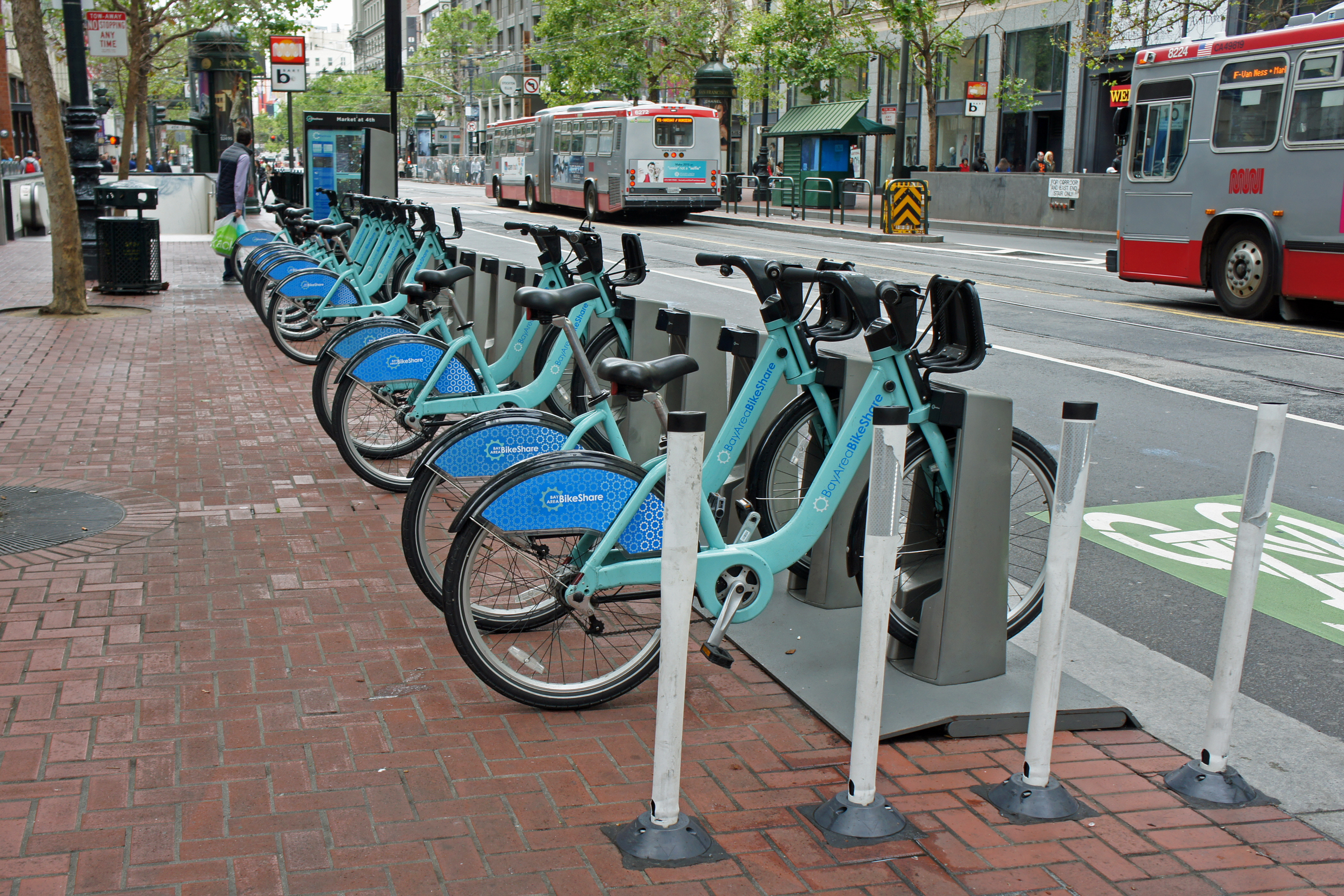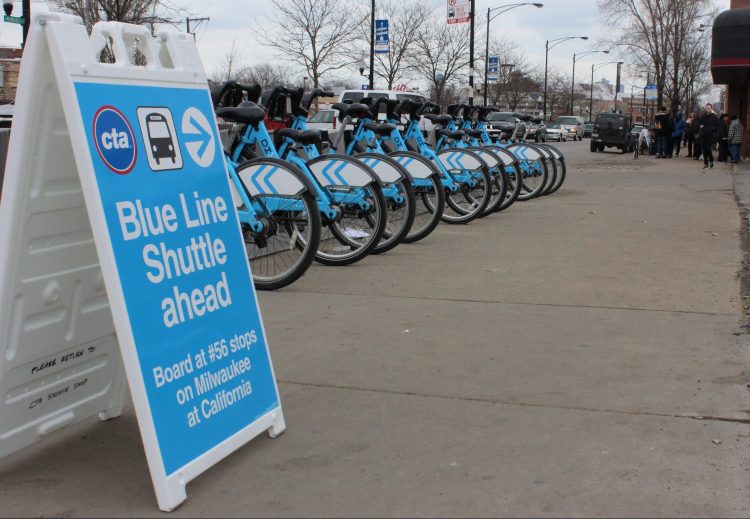

“Creative Commons Your New Blue Customer Information” by CTA Web is licensed under CC BY 2.0
TransitCenter is proud to announce that it is developing the performance indicators that will be used to evaluate the 11 awardees of the Federal Transit Administration’s (FTA) Mobility on Demand (MOD) Sandbox Program. These 11 public transportation agencies will receive FTA funding and support to pilot new partnerships.
Mobility on Demand Sandbox Awardees:
Regional Transportation Authority (Pima County AZ) – Integrates fixed route, ride-sharing and carpool services to improve access to transit – $669,158
Valley Metro Rail (Phoenix AZ) – Integrated mobile ticketing and trip planning including ride-hailing, bike sharing and car-sharing – $1,001,000
City of Palo Alto, CA – Trip reduction software and workplace parking rebates – $1,085,000
Los Angeles County Metropolitan Transportation Authority – Partnership with the car-sharing company Lyft to improve access to transit – $1,350,000
San Francisco Bay Area Rapid Transit – Carpool-to-transit program – $358,000
Pinellas Suncoast TransitAuthority (Pinellas County FL) – On-demand paratransit using taxis and car-sharing – $500,000
Chicago Transit Authority – Incorporates Divvy Bikeshare CTA’s transit trip planning app – $400,000
Tri-County Metropolitan Transportation District of Oregon (Portland OR) – Build on existing trip-planning app to incorporate emerging mobility options. – $678,000
Dallas Area Rapid Transit – Integrates ride-sharing services into DART’s GoPass ticketing app – $1,204,000
Vermont Agency of Transportation – Statewide transit trip planner incorporating non-fixed route services. – $480,000
Pierce Transit (Pierce County WA) – Connect service across two transit systems and ridesharing companies to increase transit use – $205,922
As emerging mobility services like bikeshare, carshare, TNCs, and on-demand transit continue to change the way people get around cities, there are important implications for public transportation. In our recent report, Private Mobility, Public Interest, we detail proactive strategies cities and transit agencies can employ to take advantage of emerging mobility options. The report urges cities and transit authorities to lead rather than follow in assigning roles for public and private transportation actors. It identifies the following four key principles for agencies to consider as they form partnerships with private providers to further Mobility on Demand goals:
- Partner to reinforce transit’s strengths
- Leverage agency controlled assets
- Plan for a streamlined user experience
- Be open to new ways of providing useful transit
Our development of an updated set of performance indicators for the Mobility on Demand Sandbox awardees is a natural extension of this work. As the industry changes and more private mobility options emerge, it is critical for agencies to reassess public transportation’s goals, how progress towards those goals can be measured, and what the federal government’s role will be in setting a national transportation agenda to incentivize progress toward the achievement of national goals. It is likewise critical that public agencies set the agenda for their partnerships with private providers, establishing clear goals and performance targets, in order to preserve and protect the public interest.
By encouraging partnerships between public and private transportation providers, the Mobility on Demand Sandbox Program is a first step toward making transportation as seamless and equitable as possible. We are excited to help develop the incentives the federal government provides to agencies in order to further this mission.
We offer our warmest congratulations to the 11 awardees, and we look forward to working with each of you in short order.